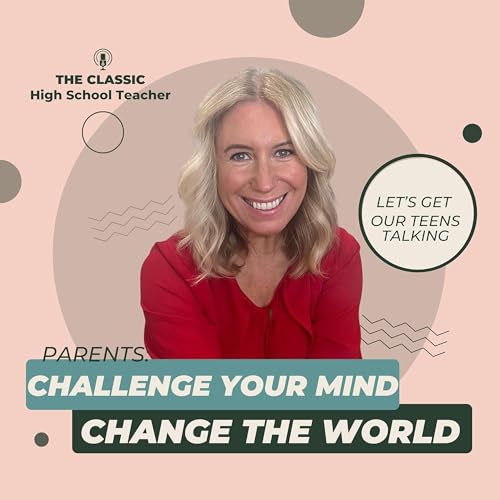Send us a text
Have you ever wondered if your teenager's moodiness is just "normal teen behavior" or something deeper?
This eye-opening episode reveals the startling truth: today's teenagers report higher stress levels than adults, even without adult responsibilities like mortgages or full-time jobs.
Francesca Hudson dives into the invisible pressures weighing on our teens, from the "always-on brain drain" of social media creating cognitive fatigue patterns similar to workplace burnout, to the performance culture that extends beyond academics into their digital lives.
You'll discover how social exclusion online activates the same brain regions as physical pain, and why so many teens suffer from eco-anxiety about inheriting what they perceive as a broken world.
Whether you're concerned about your teen's wellbeing or simply want to strengthen your connection during these formative years, this episode provides the insight and practical tools to support your teenager through one of life's most biologically demanding phases.
For further resources see:
The Teen Shutdown Decoder (free resource)
Links mentioned in this episode:
1️⃣ American Psychological Association – Stress in America Report (2023)
👉 https://www.apa.org/news/press/releases/stress
2️⃣ Oxford Internet Institute Study on Social Media & Cognitive Fatigue (2022)
👉 https://www.oii.ox.ac.uk/research/projects/social-media-mental-health/
3️⃣ The Lancet – Climate Anxiety in Young People Survey (2021)
👉 Full study here:
https://www.thelancet.com/journals/lancet/article/PIIS0140-6736(21)02146-3/fulltext
4️⃣ Harvard’s Center on the Developing Child – The Power of One Caring Adult
👉 https://developingchild.harvard.edu/resources/inbrief-the-impact-of-early-adversity-on-childrens-development/
5️⃣ Stanford University – Chronic Stress and Brain Shrinkage (2022)
👉 https://med.stanford.edu/news/all-news/2020/10/how-stress-affects-the-brain.html
6️⃣ University of Michigan’s Adolescent Health Lab – Internalizing vs. Externalizing Behavior
👉 https://www.psychologytoday.com/us/blog/child-development-central/201811/understanding-internalizing-and-externalizing-behavior
7️⃣ CDC – Sleep and Teen Mental Health Report
👉 https://www.cdc.gov/healthyyouth/health_and_academics/pdf/sleep-factsheet.pdf
8️⃣ Dan Siegel – “Name It to Tame It” Concept
👉 https://www.drdansiegel.com/blog/2012/02/23/name_it_to_tame_it/
If you enjoyed today's episode, please take the time to rate our podcast. Your rating means the world to us and it allows us to continue to share and grow our message of support to other fabulous humans out there!
For more free resources, check out my guide to the 5 secret habits of teens who succeed. Jam packed with advice, tips and strategies. Yours free!
Follow us on:
Instagram
Facebook
Or visit our website: www.classicliteratureteacher.com
 20 mins
20 mins 15 mins
15 mins 39 mins
39 mins 28 mins
28 mins Mar 19 202534 mins
Mar 19 202534 mins 22 mins
22 mins 34 mins
34 mins 36 mins
36 mins
